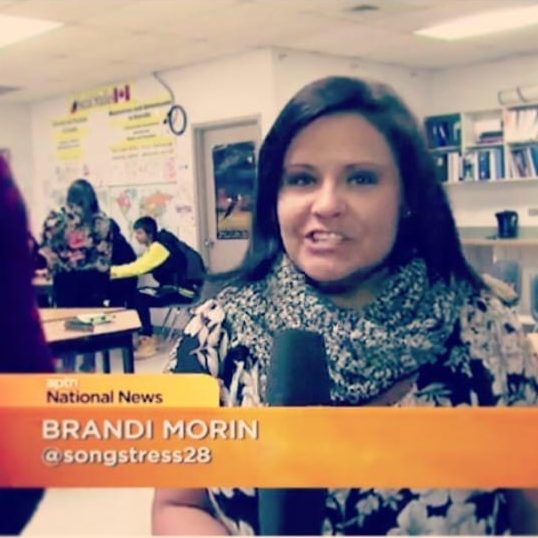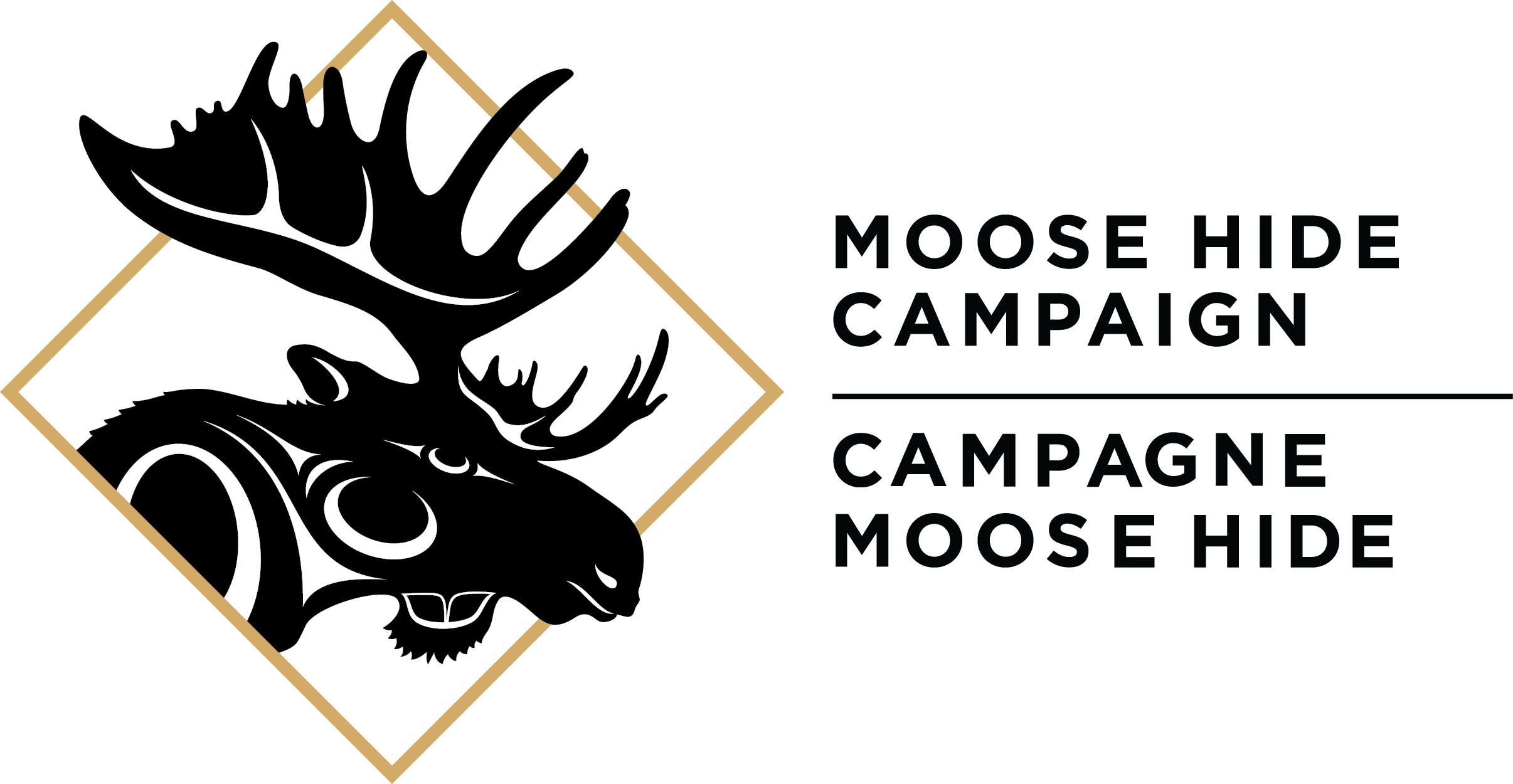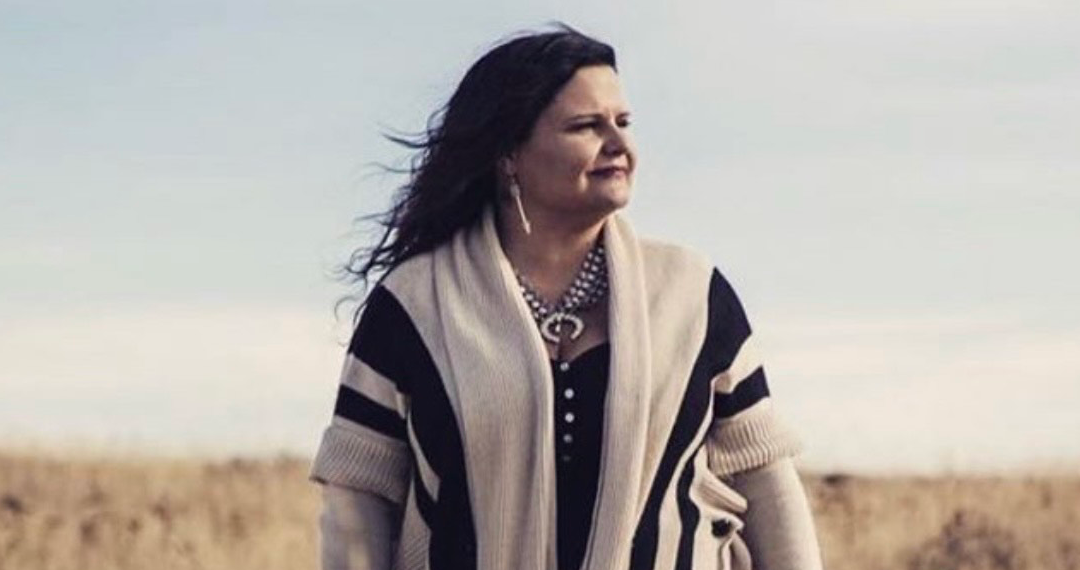Brandi Morin is a storyteller, a survivor and a passionate advocate for Missing and Murdered Indigenous Women, Girls and Two-spirit people.
As the keynote speaker for Moose Hide Campaign Day, she envisions a future where violence against Indigenous women and girls is completely eradicated and where these women and girls can powerfully live out the lives they choose.

Morin is of Cree, Iroquois, and French descent from Treaty 6 territory in Alberta. She is an award-winning journalist who has brought attention to Indigenous oppression in Canada through publications like National Geographic, Al Jazeera English, the Guardian, VICE, ELLE Canada, the Toronto Star and the New York Times. Morin is also a survivor of sexual violence, and she shares her powerful life story in articles and in her book Our Voice of Fire: A Memoir of a Warrior Rising, which became a national bestseller within days of its release.
Morin’s career in journalism began over a decade ago as a beat reporter for the Spruce Grove Examiner/Stony Plain Reporter. She quickly noticed the way Indigenous people were being portrayed in the media: discriminative, racist, and harmful.
“It really upset me, and I wanted to try to make a difference,” she said. “I started to solely focus on Indigenous stories. That’s how that passion was born.”
As her career grew, Morin decided to share her own story of survival because she related deeply to the cases of violence she was covering. She felt like she had a responsibility in her position of influence and wanted to give Canadians an inside look at this devastating crisis.
“So many times, our women are portrayed as just statistics,” Morin said. “I wanted to humanize the issue.”
What makes Morin such a powerful figure is her clear-eyed, empathetic, and honest storytelling. Read her work, and it’s clear she cares deeply about her subjects. At the same time, she does not shy away from the devastating reality of violence against Indigenous women and girls today, like the fact that the remains of five Indigenous women who were found—or are believed to be buried—in Winnipeg landfills, all in the past year.
Morin believes that representation of Indigenous issues in the Canadian media is slowly improving, but there is still much work to be done. When it comes to Missing and Murdered Indigenous Women and Girls, a very low percentage of cases are covered in the mainstream.
“Given that the national inquiry called this an ongoing genocide, it’s shocking that these stories are not covered more,” she said.

Part of the issue is there aren’t enough trained journalists to go into Indigenous communities and understand the complexity of the issues and the cultural protocols. For a start, Morin said, journalists need to get to know their communities by really understanding their history and reaching out to members who are open to sharing.
For people who aren’t journalists, Morin believes advocating and lobbying elected officials on all levels is one of the most effective ways to make change. She also knows there is power in allyship, in stepping out of your own “bubble” and taking a deep look at the crises that are happening in our country.
“The roots of much of this violence are deeply systemic. It encompasses so many different things, from the impact of colonization, residential schools, the 60s scoop, the child welfare crisis and all the different adversities that our people face today,” Morin said. “Focus on reconciliation and doing what you can do to make our communities healthy again.”
Morin was thrilled to be asked to be the keynote speaker for Moose Hide Campaign Day this year. She has been following the campaign for many years and knows that men and boys stepping up to honour women is the path toward ending gender-based violence.
“We need to empower men and boys to honour, respect and uplift our women,” she said. “We need to go back to the time when women were treated as sacred before the dominant patriarchal mindset was brought in. We need men and boys to step into their warrior role.”

Morin plans to move forward in her career by writing more for an international audience, like her upcoming feature in Rolling Stone. She’s also getting into documentary storytelling. What is perfectly clear: Morin will keep fighting until all Indigenous women and girls can lead the lives they dream of, just like she did.
Brandi Morin will deliver the keynote speech at the Moose Hide Campaign Day on May 11. You can register for the event here.

